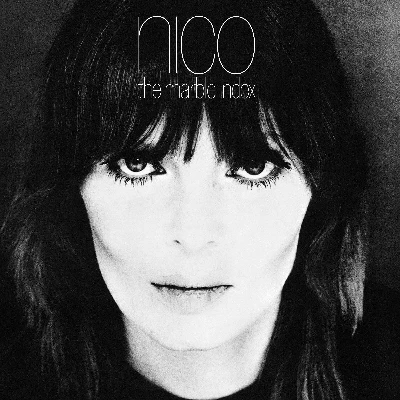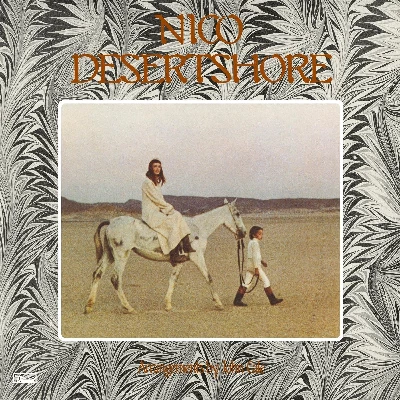Nico
-
Profile
published: 4 /
5 /
2024

Eoghan Lyng examines the late 60's/early 70's career of Nico and the recent reissue of her two albums. 'The Marble Index' and 'Desertshore'.
Article
Amongst the innovative 'The Marble Index' and the near-perfect execution of 'Desertshore,' it's easy to forget that Nico wasn't the household name posterity has painted her as in the decades since her untimely death. However, because of her stagecraft, ethereal vocal abilities and penchant for baroque melody ensured that her legacy lived on in the musicians that followed in her footsteps. (Bauhaus vocalist Peter Murphy cannily described her as authentic in a way only he could. “Nico was Mary Shelley Gothic," he revealed; "everyone else was Hammer Horror movie Gothic.”)
Thought to be out of print, 'The Marble Index' (1968) and 'Desertshore' (1970) have been tastefully remastered to capture the vocalist at her rawest and most spontaneous. Co-produced by John Cale (The Velvet Underground's bassist and most accomplished musician), both albums demonstrate the singer's visceral nature, and although 'Desertshore' is the stronger of the two, 'The Marble Index' is a formidable opus of avant-pop music. On both albums, Nico's voice shines over the instrumentation, a shrill, singular voice standing over a citadel of noise.
Written as a direct contrast to her folkier sounding 'Chelsea Girl,' (1967) 'The Marble Index' offered Nico the opportunity to sing out as she had always intended, and 'Ari's Song' pushes along with the thunder of a vocalist searching for an expression of thought and individuality. It's not the destination that's high on her mind, but the process; explosive, earnest, and laced with a lustre for adventure. Then there's the plonking piano on 'Facing The Wind', heard high up in the mix, the notes echoing the dissonance of the song. Packing decades of pain (Nico had witnessed Jewish children passing her on their way to Auschwitz in her younger days) into her vocals, Nico allowed a piece of her to feature on the recordings. 'Frozen Warnings' is sung virtually alone: a harmonium is the only evidence of instrumentation that can be heard on the finished piece. Like the other tracks, 'Frozen Warning' was audio mastered from the original tapes, but none of the edges were lost in the process. "My melodies are from the Middle Ages," Nico explained, discussing her process. "They are from my Russian soul. I do not mean this literally, but they are that in my imagination."
If suffering is what she was after, then she does it beautifully on 'Evening of Light', concocting a picture of disharmony and despair in one package. 'The Marble Index' finishes with two previously unreleased tracks: 'Roses In The Snow' and 'Nibelungen'. Of these two, 'Nibelungen' is the more interesting, not least because it tips its hat back at the eddic poem.
Where 'The Marble Index' sounded stark, sparse even, 'Desertshore' is a grander listening experience, and Nico sounds more confident. 'Janitors of Lunacy' is one striking opener: Nico's voice wailing with the ferocity and sadness of a widow calling out for the man who has left her for another world. 'My Only Child', lit up by harmonium' and a ghostly backing vocal, dials the clocks back to the days when mothers sang for their children; addressing the concerns of their forefathers and ancestors.'Mutterlein' cuts through the proceedings, no doubt bolstered by her native German, while 'Le Petit Chevalier' is performed in French. Densely pieced together, the track is a testament to Nico and the philosophies of the decade in question; pinpointing the vitality of the root in question.
Nico's music was recorded within the context of the time, although considering the absurdity of the decade we now find ourselves in, Nico's music now has another chance to shine to audiences searching for something odder and more offbeat than the more conventional pop structures heard on the radio. Long may her legacy last.
Play in YouTube:-
Picture Gallery:-
